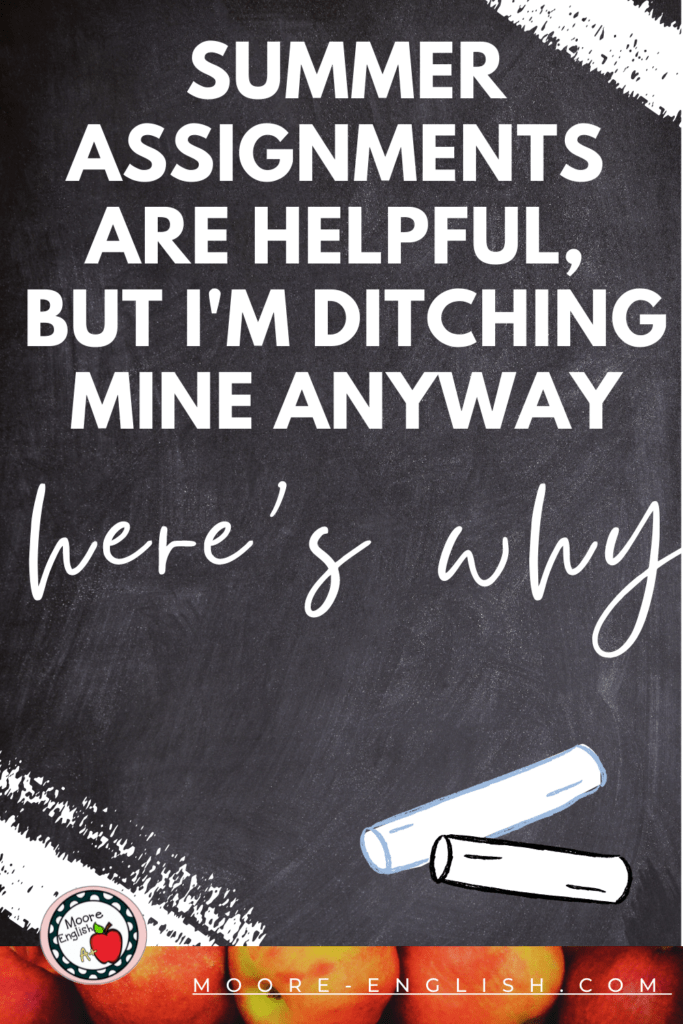As a new teacher, I inherited an honors English class and its summer assignment. At the time, I didn’t even think about it. The summer assignments were part of the class, and I used them without thinking.
After a few years, I adjusted the summer assignment: clarifying the directions, offering a specific rubric, and changing some of the requirements.
I never really stopped to question the act of giving a summer assignment.
But I should have.
This post this post may contain affiliate links. Please read the Terms of Use.
Summer Assignments are Helpful
Looking back, I never questioned the use of a summer assignment because it was so helpful.
As a new teacher, the summer assignment was helpful because I knew exactly where to start the year. Students arrived on the same page (literally), so we could dive into curriculum quickly. A lot of our back-to-school community-building activities could be founded in the relatively safe world of the summer assignment.
As a more veteran teacher, I was reluctant to part with my summer assignment because it would be inconvenient. After several years, I had developed a solid first unit focused on the summer assignment. Students reflected on the summer assignment. Then, we revised the summer assignment. Ultimately, students ended up with their first substantive summative assessment based on the summer assignment.
In the end, none of that matters. The summer assignment has to go.
Summer Assignments are Also Discriminatory
In the last few years, I’ve become more and more aware of antiracist pedagogy. (That it took so long for me reflect on the role of an antiracist educator says a staggering amount about my privilege.)
As I’ve read more and learned more about the role of an antiracist educator, I became more and more convinced that my summer assignment was doing more harm than good. If nothing else, the summer assignment assumed that all students had access to the same resources outside of the school year (a library, internet, a reliable device, etc.)
Beyond those factors, it assumed that students had the luxury of time during the summer. In fact, many students work during the summer or are the source of their family’s childcare. Other students lack the resources that create a comfortable learning environment (quiet, reliable shelter, access to food, etc.)
While I cannot know every student negatively impacted by the summer assignment, it’s likely that the summer assignment most negatively impacted my Black and brown students. Doubtless, this policy also affected students from lower socioeconomic classes and students learning English.
Moving Forward
When I broached this topic with my colleagues, I was pleasantly surprised at how quickly they agreed to also drop their summer assignments. Previously, our school had four ELA classes with summer assignments (all of them honors or AP courses). Now we do not have any ELA classes with summer assignments. In addition to everything else, our summer assignments were a form of gatekeeping. Yes, we may have inherited them from our mentors. Yes, we may have also had to complete summer assignments in high school. However, this feels like a classic example of “know better, do better.”
In the end, there’s a great deal of systemic racism individual teachers cannot change quickly or easily. Making substantive systematic changes requires coalitions, large-scale advocacy, and community support. However, this one change was something I could control.
















